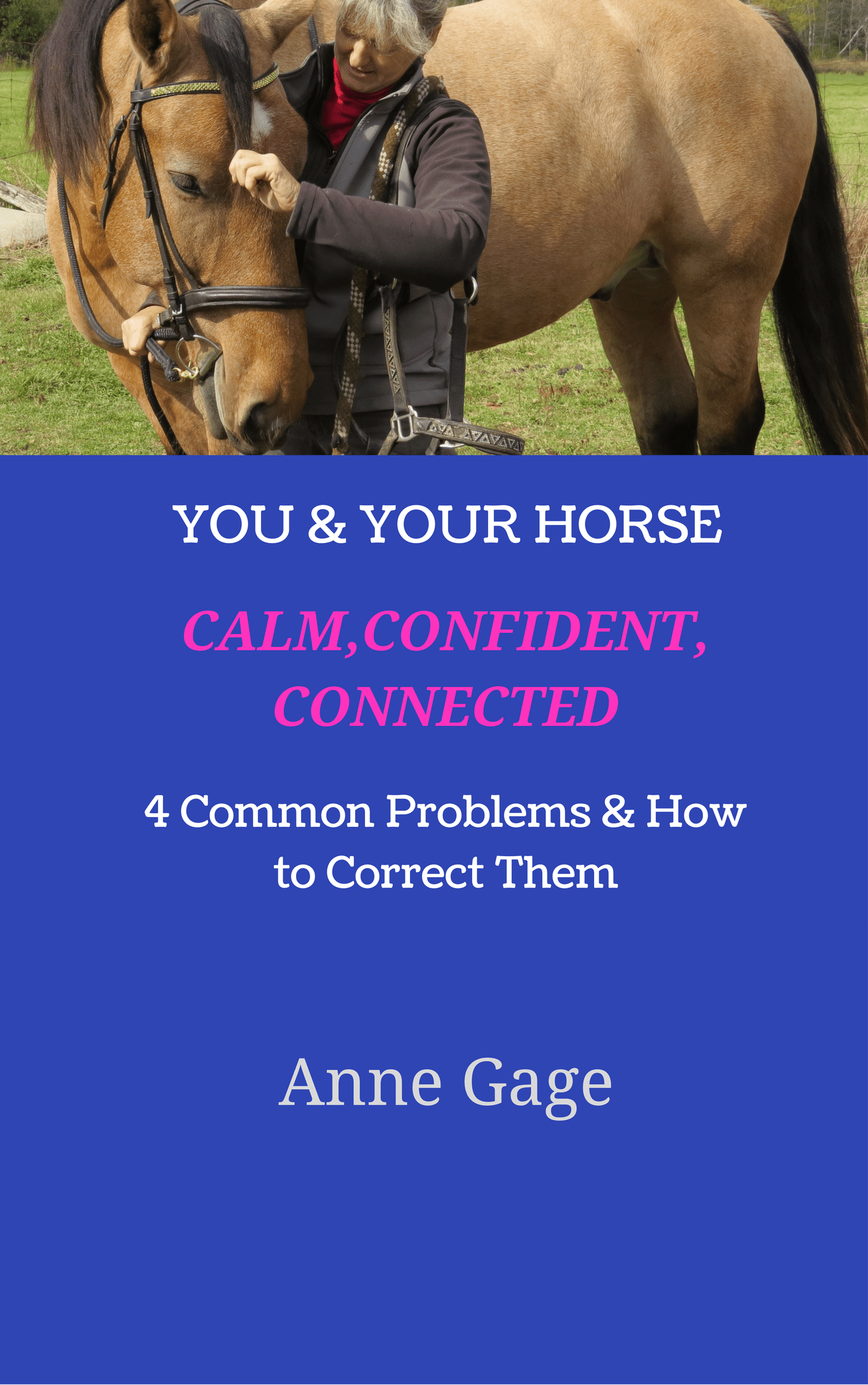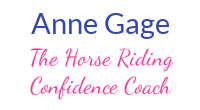Your horse is good ... most of the time. But then there are the times when he suddenly, and without warning, spooks, or explodes into some undesirable behaviour. Read on to learn why your horse behaves badly at times and how to prevent it.
Recenty, I was teaching the first lesson in my Connecting with Horses 4 week series at a local riding school. The 10 students included 3 riding instructors as well as riders and horse owners of all levels of experience. They were learning how to recognize the most subtle signs of tension in horses that are most often missed. And how catching these early signals prevents 'bad' behaviour from happening.
OBSERVING THE HORSES
We were observing 3 school horses in the indoor arena that chilly winter evening.
A Thoroughbred mare who quite clearly showed how she was feeling.
There were absolutely no mistake recognizing when she was feeling tense or worried. As the students who are familiar with this mare said, "There's nothing subtle about her communication!"
A Haflinger mare who appeared to be 'just fine' with everything that was happening ... except when something happened behind her. Then she tucked her tail tight and scooted forward. (Something she occasionally does while being ridden as well.)
And, a cob sized grade mare who seemed completely unfazed by anything that was going on. Standing quietly with her head low and her eyes half closed, the students all thought she was quite relaxed and maybe even so bored that she was falling asleep. Except that there were signs that she was indeed feeling stressed.
LOOK AT THE WHOLE PICTURE
You have to look at the whole picture - not just one piece - to figure out why the horse behaves badly. You need to understand what's really happening from the horse's perspective and how the horse is really feeling.
Looking only at the facial expression of the little cob mare was deceiving. Looking closely at her whole body, it was obvious that she was holding her tail tightly against her buttocks. That's always a tell tale sign of tension. If the mare had been comfortable and calm, her tail would have been soft and hanging softly.
This little mare was coping by shutting down - tuning out the activity around her.
Many school horses cope in this way, and it is why they are reliable for teaching beginner riders. Until, at some point, they surprise everybody when that quiet little school horse behaves badly and "out of no where" suddenly spooks, bolts or bucks.
TENSION ACCUMULATES UNTIL YOUR HORSE BEHAVES BADLY
Tension accumulates over time until it reaches a point where it just can't be contained anymore.
So, your 'good horse' who has been giving subtle signs that she is stressed, finally can't cope with that next level of stress. And, your horse reacts suddenly, without warning (or so you think) and even explosively. The horse is called "bad", "disobedient" or "a brat" and then is disciplined for the behaviour. That discipline simply piles on more stress and does nothing to help alleviate the horse's tension.
The behaviour will either escalate or the horse will shut down and possibly even develop learned helplessness.
The thing is that if the tension had been noticed and addressed earlier, then the "bad" behaviour wouldn't have happened in the first place. It would have been completely avoided. Simply by helping the horse to release the tension and feel more calm. And, you would have earned more trust from your horse ... which builds a better partnership.


